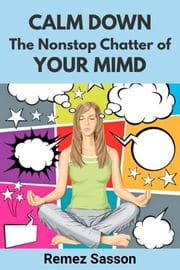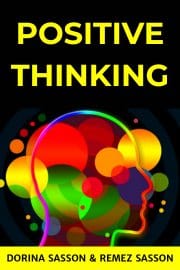
Modern therapies offer new hope for people struggling with low mental energy. When brain function drops, everyday tasks feel heavier—decision-making slows, emotions become harder to manage, and basic focus breaks easily.
Treatments like brain stimulation and hyperbaric therapy have moved forward significantly, giving patients options when standard approaches fall short.
This piece explains how these therapies work, from mindful modern practices to advanced methods such as repetitive transcranial magnetic stimulation (rTMS), now cleared by the FDA for several resistant conditions. Together, these approaches show how modern care can restore mental vitality.
Why Cognitive Energy Declines
Mental energy drops for several interconnected reasons that influence how well we think, remember, and process information. Understanding these factors helps identify the right therapies and lifestyle changes to support healthier cognitive function. Several key contributors consistently appear across clinical research.
Main Factors that Reduce Cognitive Energy
Here are the main factors that reduce cognitive energy:
Lack of Sleep and Poor Rest Cycles
Sleep deprivation significantly weakens mental performance. A large percentage of adults and most teens fail to sleep enough, which leads to dull emotional responses, heightened anxiety, difficulty learning, and impaired memory. Long periods of disrupted sleep alter the brain’s ability to deliver nutrients and oxygen to brain cells, increasing the risk of long-term cognitive issues.
Chronic Stress and Emotional Overload
High stress levels reshape how the brain functions. Stress reduces activity in the prefrontal cortex that supports decision-making and increases activity in survival-oriented regions. Because the brain must allocate energy to handle stress, fewer mental resources remain available for tasks requiring focus, analysis, and emotional regulation.
Nutritional Deficiencies and Dehydration
Diet strongly influences brain function. Low levels of essential nutrients such as omega-three fatty acids, B vitamins, and vitamin D raise the risk of cognitive decline. Diets high in saturated fat and sugar disrupt sleep, which further drains mental energy. Even mildly low vitamin B12 levels can cause neurological and cognitive problems, particularly in older adults.
Medical or Neurological Conditions
Many health conditions contribute to cognitive decline. These include neurological disorders such as Alzheimer’s disease, hormonal imbalances like hypothyroidism, and mental health conditions including depression and anxiety.
Cognitive issues also arise in autoimmune disorders, diabetes, chemotherapy treatments, and conditions involving dopamine loss, such as Parkinson’s disease.
Modern Therapies That Strengthen Focus and Mental Clarity
New brain treatments target brain function directly to boost mental clarity and focus. These treatments bring hope to people with ongoing cognitive challenges.
Electroconvulsive Therapy (ECT)
ECT stands as the gold standard to treat severe depression that resists other treatments, helping 80% of patients see major improvements. The treatment works well for schizophrenia and bipolar disorder, too.
Doctors administer a controlled electrical current to cause a brief seizure while patients are under anesthesia. The process happens 2-3 times weekly for 6-12 sessions. The treatment works well, but patients might experience temporary memory loss that usually gets better within weeks.
Weekly guidance, stories, insights, and simple practices to expand awareness, quiet the busy mind, and break free from autopilot.
👉 Read a Free Inner Awakening lesson
Repetitive Transcranial Magnetic Stimulation (rTMS)
rTMS works without anesthesia or seizures. This gentle treatment uses magnetic fields to target specific brain areas and serves as a great option for patients who struggle with medication side effects.
The FDA has cleared it to treat resistant depression, OCD, migraines, anxiety, and smoking dependence. The treatment helps 50-60% of patients who don’t respond to antidepressants, and about one-third of patients recover completely. Patients need daily sessions for 4-6 weeks.
Vagus Nerve Stimulation (VNS)
Doctors first used VNS to treat epilepsy. The treatment changes brain function by stimulating the vagus nerve electrically. Studies show it helps improve emotional recognition, selective attention, and memory.
The FDA approved VNS for depression cases lasting over 2 years that haven’t improved after four other treatments. VNS offers a long-term solution with proven cognitive benefits for conditions that resist other treatments.
Hyperbaric Oxygen Therapy (HBOT)
HBOT allows patients to breathe pure oxygen inside a pressurized chamber, which leads to measurable improvements in cognitive function, typically rising by 3.1–3.8%. Research also reports increased brain blood flow of 43.3–52.3% in regions responsible for memory, coordination, and complex processing.
The treatment has shown strong potential for individuals recovering from traumatic brain injury, who often experience meaningful progress in attention, memory, and overall cognitive performance.
Many patients now have the option to continue this therapy at home, which helps them maintain steady progress without relying solely on clinic-based sessions.
If you are interested in finding the best portable hyperbaric chamber, you should define your therapeutic goals, compare safety features, and choose a model that supports consistent home-based sessions recommended by a qualified clinician.
Foundational Habits That Restore Mental Vitality
Modern therapies provide powerful interventions, but daily habits are the foundations of sustained mental vitality. These basic practices work with clinical approaches to optimize brain function.
Balanced diet and hydration
Your brain’s performance depends on what you eat. A diet rich in vegetables, fruits, legumes, and minimally processed foods reduces depression risk by 25-35% compared to typical Western diets.
The Mediterranean diet’s abundance of plant foods and healthy fats promotes gut biome diversity that leads to positive mental health. Your concentration, mood, and cognitive function depend on proper hydration—even mild dehydration can affect these aspects.
Daily physical activity
Physical activity boosts your processing speed abilities and memory. Research shows that people feel better, have more energy, and experience less stress at the time they are more active than usual. You can get cognitive benefits from small increases in physical activity, even outside laboratory settings.
Mindfulness and Meditation Practices
Meditation alters brain structures and activity in areas linked to attention and emotion regulation.
his practice reduces stress and helps improve symptoms of depression, anxiety, and PTSD. A study found that mindfulness-based stress reduction worked as well as medication to treat generalized anxiety disorder.
Consistent Sleep Routines
Your brain’s glymphatic system clears metabolic waste during sleep. Sleep quality affects your memory, judgment, and focus. You can improve your sleep quality by creating consistent schedules and setting up a good sleep environment (dark, quiet, cool).
Emerging and Experimental Approaches
Scientists are learning about new ways to boost cognitive function beyond 10-year old treatments. These new approaches show promising results in clinical trials.
Magnetic Seizure Therapy (MST)
MST works as well as electroconvulsive therapy for treating depression while keeping cognitive function intact. The technique uses magnetic fields to trigger seizures and shows better results in memory, orientation, and executive function than ECT.
Patients recover their orientation more quickly after MST than ECT and experience fewer cognitive side effects.
Deep Brain Stimulation (DBS)
DBS started as a treatment for movement disorders and now shows promise for boosting cognition. Recent studies reveal that DBS can help or hurt cognition based on two things: how well the brain connects to the hippocampus and the hippocampus’s condition.
DBS boosts cognitive control and increases theta (5-8Hz) waves in both medial and lateral prefrontal cortex.
Trigeminal Nerve Stimulation (TNS)
TNS sends mild electrical current to trigeminal nerve branches that change brain activity indirectly. Blood flow in the brain increases by 15-50% with this technique. TNS helps people with depression, epilepsy, ADHD, and migraine.
This treatment’s effect on the autonomic nervous system makes it valuable for many neurological conditions.
Transcranial Direct Current Stimulation (tDCS)
tDCS uses weak direct current (1-2 mA) between scalp electrodes to change how neurons fire. Research shows that stimulating the left dorsolateral prefrontal cortex improves working memory and attention accuracy. The results depend on how the stimulation is done, its polarity, and where it’s targeted.
Conclusion
Better cognitive wellness depends on an individualized plan. Some people benefit from non-invasive brain stimulation, while others see progress through hyperbaric chamber sessions or structured lifestyle changes. A qualified clinician can guide you toward the most suitable option.
Modern mental health science continues to advance, combining established treatments with new technologies to strengthen long-term clarity and resilience. Understanding your choices and taking the first step toward care creates a foundation for better mental energy and improved overall well-being.
Disclaimer: This article is for informational purposes only and is not a substitute for professional medical, psychological, or therapeutic advice. SuccessConsciousness.com does not endorse or guarantee any statements, methods, or claims made by the guest author. We are not liable or responsible for any misuse or misinterpretation of the information presented in this article. Always seek the guidance of a qualified professional regarding any mental health concerns or treatments.


